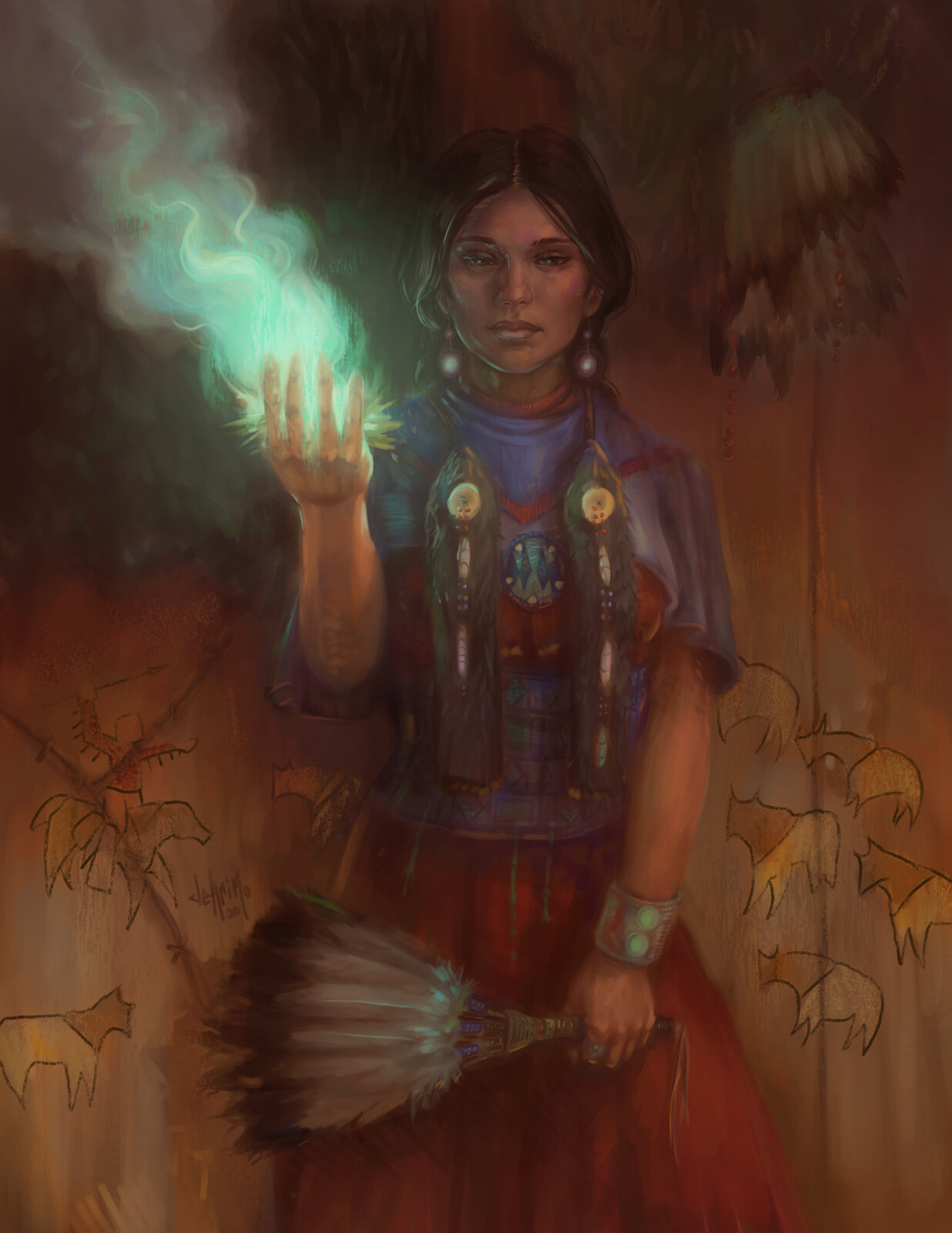Ancestor Worship
Spirit guides
| Table of Contents |
|---|
Profile
Ancestor worship, also known as animism, is the practice of worship of spirits. In most cases, the souls prayed to are the dearly departed souls of those related to the worshiper, such as friends, family, kinsmen, or other ancestors. In rarer cases, these souls could be the souls of other powerful creatures with spiritual meaning, such as bears, wolves, or dragons, among others. Worship and the divine essence of souls in Arda hold power, and the worship of these empower the souls and grant them meaning in the afterlife. In many cases, these guardian spirits will guide and protect the worshiper, much in the same way a deity such as the Heavens or the Primordial Lords would. The nature and purpose of these departed souls are as varied as the former lives that made them. In most cases, they are the guardians of the way of life they once lived, guiding the worshipers along the same traditions that they had followed for centuries or even millennia. They teach stories and parables from their time to impart their ancient wisdoms to the next generation, who may in turn one day also become one of the host of souls to guide the following generation. Likewise, the blessings and anathemas of their ancestors are likely to vary from clan to clan. Ancestor worship is most common in nomadic and rural societies that place strong emphasis on family or clan bonds. Most are born into this religion, who already have a per-established host of guardian spirits. In some cases, people may venerate their own ancestors and another deity. Conversion into ancestor worship is rare, but not unheard of, concerning as most spirits would be loathe to lend their power outside their family or clan.Ancestor worship varies from clan to clan, and do not possess a single holy symbol. Holy symbols among animists often include relics, totems, or fetishes which had a connection to the souls which they are calling on.
Holy Text
As ancestor worship is most commonly practiced in nomadic and rural societies, most of which have little to no access to formal education or writing instruments. As a result, such societies lack a "holy text", but instead have a rich oral tradition which is passed from generation to generation imparted from a clan's priest or shaman. Rituals among these vary greatly dependent on the local culture and customs of the group, but most rites are centered around acts or offerings meant to please or empower the souls of their clan.History
In a world with very real and very powerful deities, ancestor worship is relatively rare, especially in the more developed parts of Arda. As a result, ancestor worship has had a minimal role in shaping the greater history of the plane. The spirits of the ancestors were not known to have engaged in any part of the Primordial Wars, nor have been seen as physical manifestations like the Heavens, the Primordial Lords, or the Shadow has. Ancestor worship is one of the oldest religions on Arda, outdating even Primordial worship and existing in the early days of Heavens worship.Domains
| Granted Domains |
|---|
| Death, Glory, Knowledge, Liberation, Luck, Protection, Repose |
Adherents
As previously stated, the majority of those who venerate their ancestors or other spiritual worship are those who live in nomadic, isolated, or rural areas. The most common places with ancestor worship are Ado, Al-Andalus, Golden Khanate, Nestoria, and Rian. Most of these lands have stark contrasts between their developed and undeveloped lands of their nations, some of which have ancestral lines going back for hundreds or even thousands of years. In most cases, the current wishes of the community collective are the prayers offered to the ancestors. For example, a group in need of food would offer prayers for a successful hunt. A clan in need of water or shelter would ask guidance to find an oasis or stream. Much in this manner, the tribe or clan's leaders ask for advice, pray for protection in times of war, for freedom of travel, the safe passage of recently departed souls, or the safety of newborn ones, and so on.Afterlife
Ancestor worship has a very unique afterlife in comparison to the other major faiths of Arda. In most established religions, the souls of fallen believers are returned to the divine essence of the deity they followed in life, an act which further empowers the deity to aid the living and channel into their clerics. However, in the cases of ancestor worship, such souls are not reunited with a deity. In other similar cases (such as with willful atheists) the souls of the departed would become a lost soul. A lost soul would wander between the plane they died and the Transitive Plane where they would suffer from frustration or loneliness until they reconciled with a deity, were called upon, or were captured by a Shadow creature and unwillingly offered to the Shadow. In the case of ancestor worship, souls of the departed clanmates instead join the collective of souls that empower their families or clans after their death. As this collective of souls grows larger, so too does their collective power and the power they can grant to the shamans or clerics of their groups.See Also
A part of:Quick Reference
Domains: Death, Glory, Knowledge, Liberation, Luck, Protection, Repose
Created: N/A
Remove these ads. Join the Worldbuilders Guild











Comments